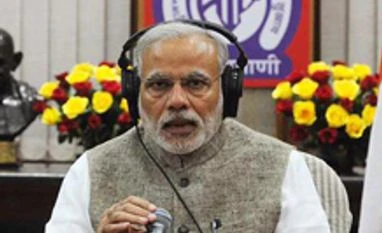Please see the correction at the bottom of the story.
A Greenpeace India employee, Priya Pillai, was prevented from leaving for the UK on a legitimate business visa by the Union government recently. No reasons were given except that the government had decided so. A fellow journalist reacted, writing on social media: would the government also check on Skype conferences of people on secret watchlists?
A Greenpeace India employee, Priya Pillai, was prevented from leaving for the UK on a legitimate business visa by the Union government recently. No reasons were given except that the government had decided so. A fellow journalist reacted, writing on social media: would the government also check on Skype conferences of people on secret watchlists?
In the recent months, the government has also cracked down on some US-based international organisations working in India, such as Avaaz and 350.org, freezing their accounts while reviewing the purpose of their funding.
Writing on the international climate change negotiations, I have learnt how layered and complicated the motivations and purposes of some of these international organisations can be. At times, just as layered as the legal veil that protects corporate games and at times as cloaked as the work of foreign embassies pushing their agendas through legitimate and sometimes not-so-above-board means.
The world of corporates, NGOs, governments and politicians can also collide and enmesh in complex ways during this business of lobbying, advocacy and building public discourse. To give a few examples:
In 2012, the chief climate negotiator for US was caught on tape, in a closed-door meeting, sternly reminding many US-based international NGOs that it funded several of them to be part of the negotiations. He thought they were asking some inconvenient questions that favoured developing countries.
More From This Section
In India in 2009, senior Indian ministers, bureaucrats, diplomats and business magnates were found confabulating with foreign companies and US government officials trying to save Dow Chemicals from liabilities arising out of the Bhopal Gas tragedy. Indian NGOs who get international support, too, revealed this information through RTIs.
As chief minister of Gujarat, Narendra Modi had signed an MoU with ‘The Climate Group’ which is closely linked to UK’s ex-Prime Minister Tony Blair. In fact, the book Modi authored to expound his climate leadership as a chief minister - and which his Environment Minister is now distributing to world leaders - has a foreword by the NGO’s head as well. The NGO itself has multiple international funders – some of them are organisations that in turn are funded by others.
Today, one of the prominent ‘reformer’ faces of the NDA government is Railways minister Suresh Prabhu. He has been a prominent member of many international green forums and NGOs that have advocated views not necessarily similar to that of the Indian government. He has travelled to their meetings and conferences across the world, too. He is not the only Parliamentarian to have done so.
Corporate groups, too, fund and create NGOs to push their business agendas and gain social legitimacy for their products. It is considered par for the course for corporates to use all kinds of routes to influence and manufacture discourse in public, from sponsoring convenient science forums to sponsoring junkets for politicians and journalists to hiring specialist crisis cells of advertising agencies.
There are many entities out there shaping public discourse and influencing policy within government. Surely, the NGOs are not the most powerful or the well-funded of these.
There is a strong case for bringing transparency to the functioning and financing of NGOs in India and there is a stronger case for much greater transparency of ways that society at large and elected representatives and governments specifically are lobbied by all kind of players – businesses, other governments and other entities. But in a good democracy, it is vitally important to treat them all at par and deploy the same set of ethics and benchmarks when scrutinising their actions.
The lack of new age regulations for transparency helps malafide interests of all kinds to gain a foothold or influence governance and society. It also provides a protective cloak to those in government to act arbitrarily or with malafide intentions – the way it has done with Pillai, the Greenpeace activist.
She was fortunate to have the organisational backing of Greenpeace to reach out to media and society at large. But there are too many cases across the country and in the countryside where peaceful dissent by less privileged groups is repressed and individuals are blocked from exercising their democratic rights by governments of all hues and colours.
It is not known if the Greenpeace employee Skyped to the UK conference or not.
Correction:
Correction:
An earlier version of this story had wrongly described CEEW as a foreign-funded organisation. CEEW has stated that it receives no foreign funds. We stand corrected.
)